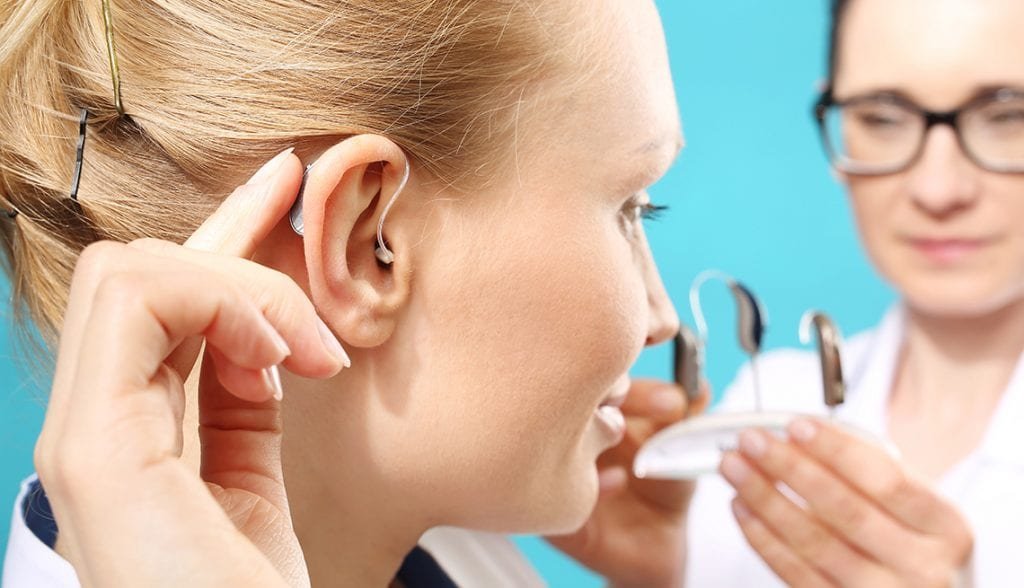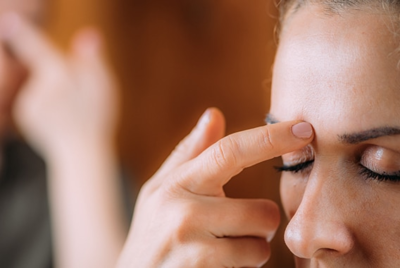How to Protect Your Hearing and Avoid Hearing Loss

Our ability to hear is something that most of us take for granted. But once your hearing is damaged, it is difficult or impossible to reverse the problem. Hearing loss often means that some, or even all of your hearing is gone for good. While that’s the bad news, the good news is that hearing loss can often be preventable. With the exception of genetic hearing loss or hearing loss that is caused by an underlying health condition, most people who have hearing loss have been exposed to loud or high-pitch noises that have caused their inner ears to become damaged.
Whether you have some signs of early hearing loss and want to prevent the situation from getting worse, or simply want to protect your ears and hearing as much as possible to prevent damage to your ears and avoid hearing loss in the future, there are several things that you can do.
Protect Your Ears From Loud Noises
Around fifteen percent of people in America are suffering from some kind of noise-induced hearing loss. If you believe that you might be one of them, then a hearing care specialist can help at phonak.com/us/en/find-a-hearing-care-specialist.html. A hearing test can help you learn more about if you have hearing loss, what might have caused it, and if there are any treatments such as hearing aids available. Most of the time, hearing loss is caused by exposure to loud noises.
Working in a noisy environment, going out to nightclubs and concerts, using noisy machinery like chainsaws, and any other situations where you might have to shout over the noise to speak to another person are all damaging to your ears. In these situations, wearing earplugs or ear defenders can help you prevent damage to your hearing as a result.
Give Your Ears Some Time
Your ears will need some time to recover if you are exposed to loud noises for a prolonged period of time such as at a busy nightclub or a concert. If you’re in these situations and you don’t have earplugs or don’t want to wear them – you do want to hear your favorite band play, after all – then stepping outside to give your ears a break for five minutes every so often can make a big difference. After a noisy event like a concert, researchers have found that your ears need to get around sixteen hours of quiet time to recover and make up for it.
Turn the Volume Down
Over a billion teens and young adults around the world are at a high risk of noise-induced hearing loss from listening to music too loud. If you like many other people like using earbuds or headphones for listening to music, then the best thing to do is make sure that you are following the 60/60 rule when you do so.
This involves only listening to music for 60 minutes a day or less using headphones or earbuds, and not putting the volume up any further than 60%. Earbuds are more dangerous than headphones as they are designed to fit right next to your eardrum. When you can, over-ear headphones are a much better choice.
Keep Your Ears Dry
It’s not just noise that can ultimately cause damage to your ears and contribute to hearing loss over time. Excess moisture in the ears can allow bacteria to get in, where it may attack the ear canal and lead to a range of ear infections such as swimmer’s ear. An infection in your ear is not only uncomfortable and painful, but it can also be very risky for your hearing. After showering, bathing, or swimming, gently dry your ears with a towel. If you can feel that there is water inside your ears, then coax the water out by tilting your head to one side and lightly tugging on the ear lobe.
If you swim a lot and want to make sure that your ears stay as dry as possible to reduce the risk of infections, then you might want to use earplugs that are designed for swimming and block water from getting into the ear canal.
Manage Your Stress Levels
Both temporary and permanent hearing problems such as tinnitus have been linked to high levels of stress and anxiety. When you are highly stressed, your body goes into fight or flight mode, an instinctive reaction that pumps your body full of adrenalin to help you either flee the danger or fight it off. While the process might be helpful in an actually dangerous situation, most of the time, the things that stress us out these days aren’t things that need fighting or running away from. It puts a lot of pressure on your blood flow, nerves, body heat, and more, and can travel to the inner ear contributing to tinnitus symptoms over time.
Don’t Use Cotton Swabs
Using cotton swabs to clean your ear and get wax out of the ear canal is not uncommon, however, experts advise against doing it. A little bit of wax in your ears is a normal thing – in fact, it can be important to have it there. The ears are organs that clean themselves, and some wax is crucial to prevent dust and harmful particles from getting into the ear canal. Instead of using a cotton bud to get rid of excess ear wax, you can use a damp towel to gently clean the ear canal.
Exercise
Exercise isn’t just good for maintaining a healthy weight and building muscles – it’s also good for your ears. This is especially true for cardio exercises like running, cycling, or walking. This is because these exercises get the blood pumping to all the different parts of your body, including the ears. As a result, it helps the internal components of the ears stay healthy, allowing them to work to their maximum potential.
Hearing loss might not be avoidable for some people as they get older. However, more people have preventable hearing loss than you might think. Keep these tips in mind to protect your ears and your hearing.
Alexia is the author at Research Snipers covering all technology news including Google, Apple, Android, Xiaomi, Huawei, Samsung News, and More.











